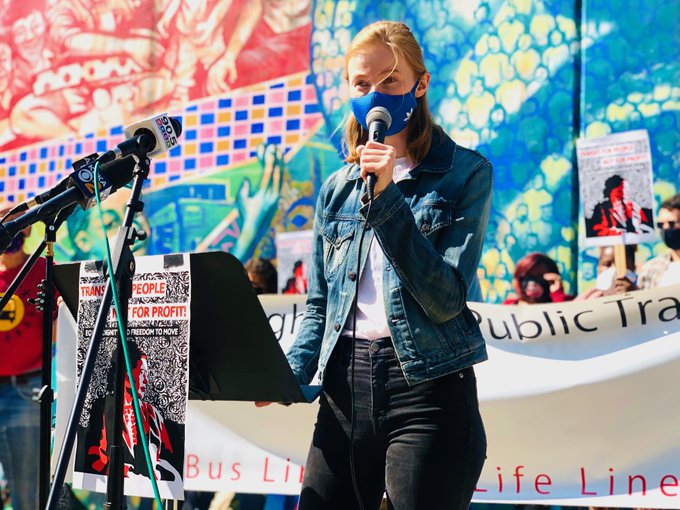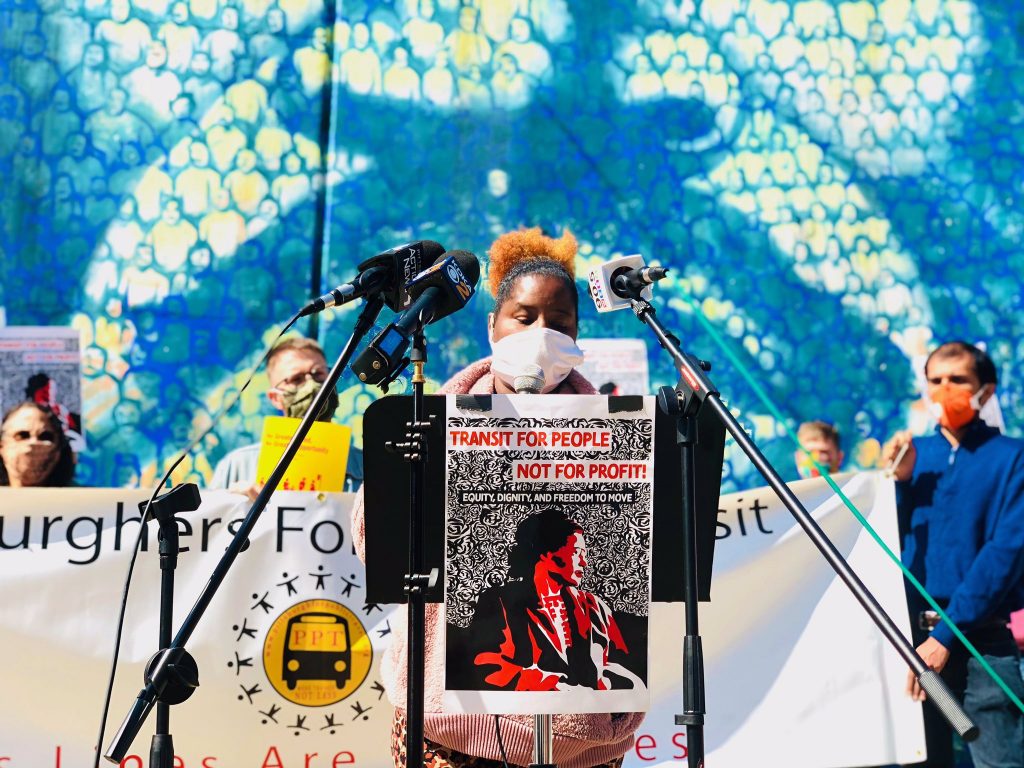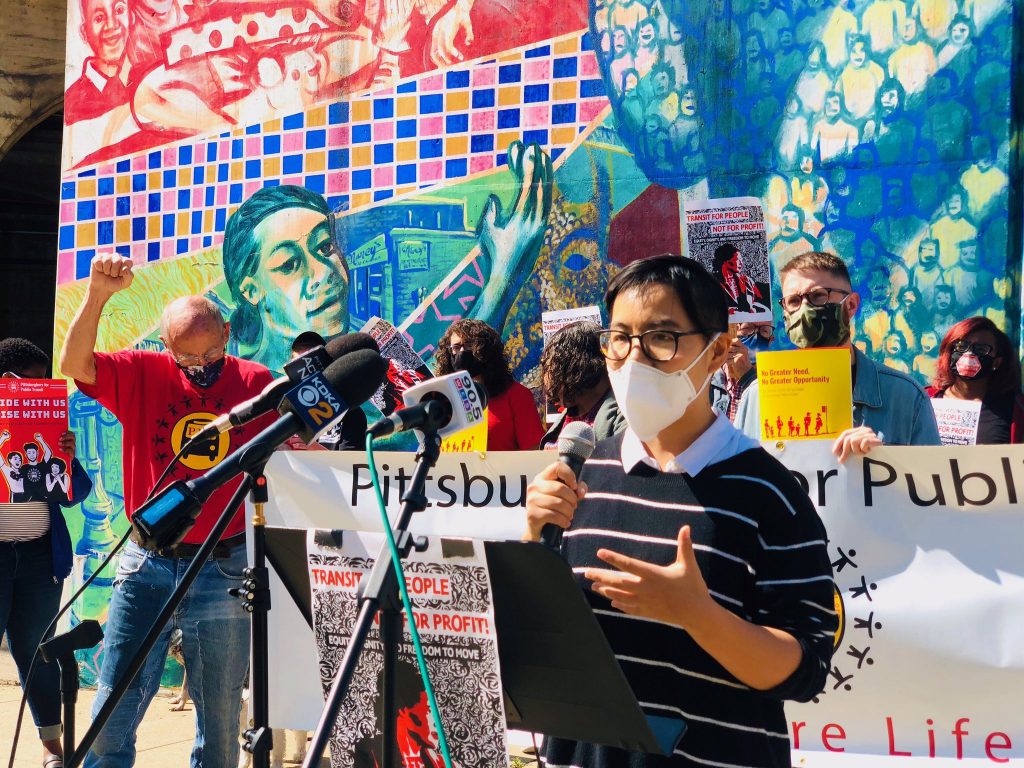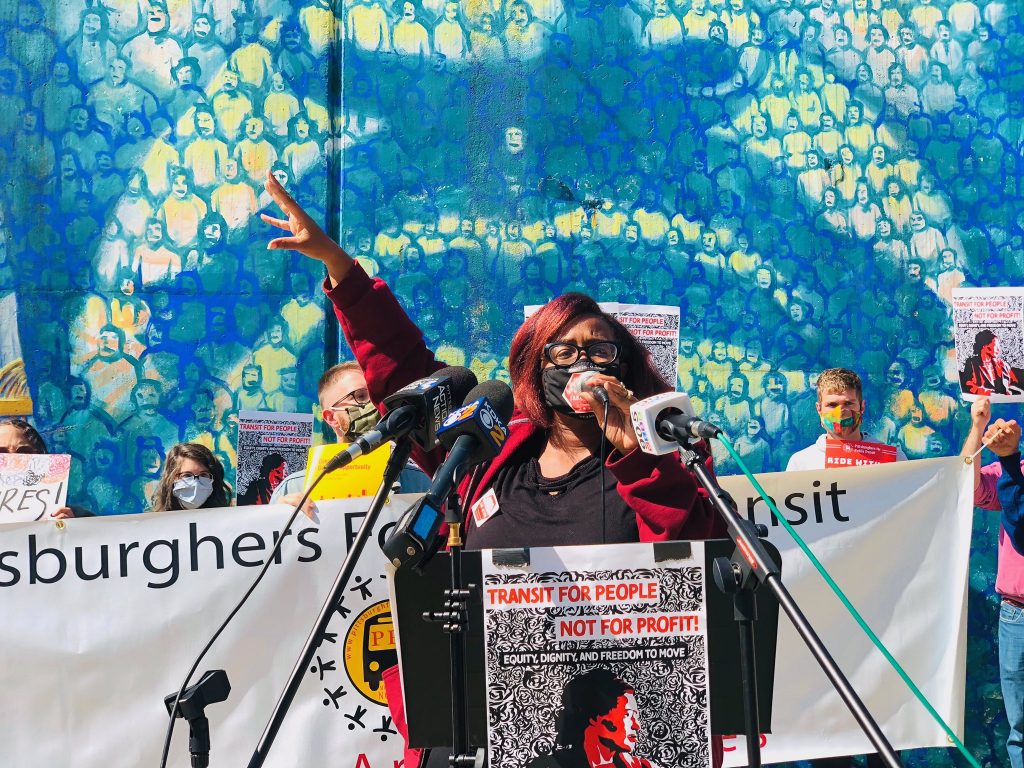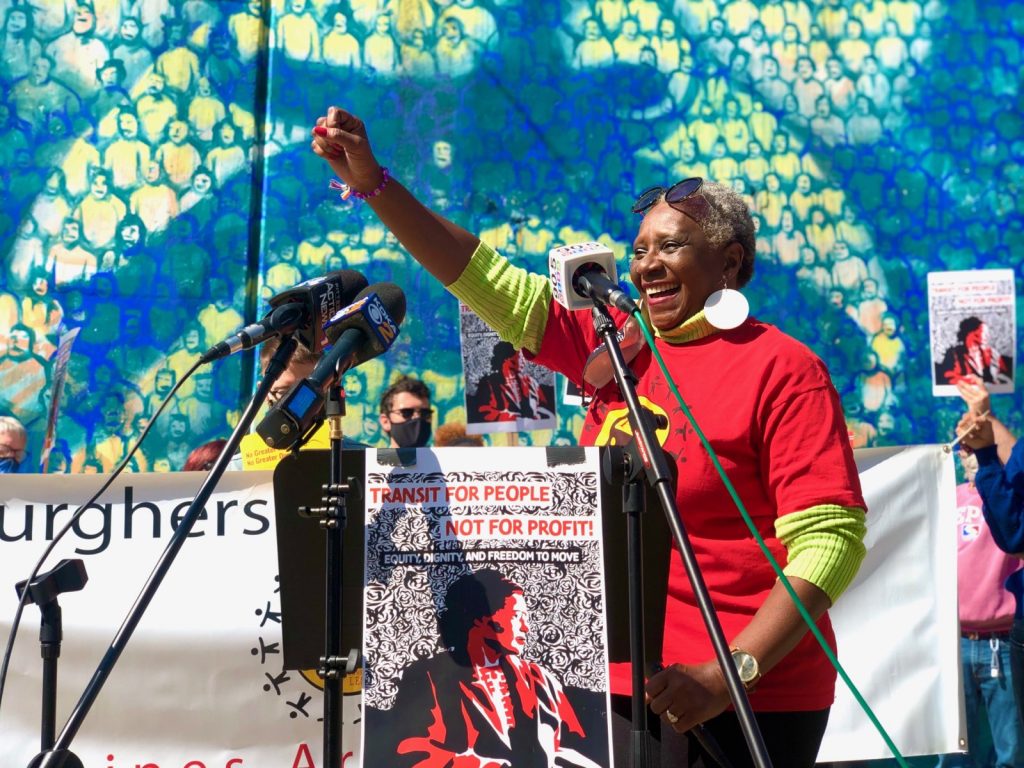
PPT releases a new report that calls on Port Authority to implement a COVID-19 Fare Relief program, for the lives of low-income riders and the health of the transit system.
On a sunny Tuesday, PPT members rallied under the colorful MLK mural near the Wilkinsburg Busway Station to release our new report, “No Greater Need, No Greater Opportunity: The Time for COVID-19 Fare Relief for Low-Income Riders is Now.” This report calls for Port Authority to implement an emergency policy. Noting that the fastest, cheapest way to do so would be to allow SNAP-eligible riders to show their EBT-ACCESS cards in place of fare payment. It analyzes months of pandemic ridership data, and was a collective research effort by more than a dozen PPT volunteers.
This report shows that the majority of people riding transit right now are Black, low-income, and traveling to access essential needs like food, healthcare, and jobs. It also shows that bus lines that run through predominantly Black & low-income neighborhoods saw the largest decreases in ridership when Port Authority re-implemented full-fare payment in June. Fares are keeping low-income riders from taking transit to access essential needs during a global pandemic and economic depression.
But along with the great need for this program, the report demonstrates why a fare relief measure is an important opportunity for the Port Authority. Ridership is at a historic low, between 30-35% of pre-pandemic levels. A COVID Fare Relief program could help stabilize and restore 9% of its ridership immediately. Moreover, because there is excess capacity on buses and a number of unique COVID-related funding sources, there is no more affordable time for this policy to be implemented. The Port Authority’s commitment to redistribute transit service to high-ridership lines during November’s service changes is an important step towards equity, and to help ensure that this policy would not require Port Authority to incur increased operating costs.
For the lives of low-income riders and the health of the transit system, Port Authority must implement an emergency low-income fare now.
Key Findings from Pittsburghers For Public Transit’s new report, “No Greater Need, No Greater Opportunity: The Time for COVID-19 Fare Relief for Low-Income Riders is Now.”
- Black residents and low-income residents represent a disproportionately high percentage of transit ridership during COVID-19.
- Transit routes serving Black neighborhoods have seen steep ridership losses from the reinstatement of full fares.
- Port Authority Transit ridership is at an all-time low (down 65-70%), and an emergency low-income fare program could allow PAAC to quickly regain 9% of its ridership.
- Port Authority can implement the program with little to no increase in operating costs by reallocating service to high-ridership routes (which Port Authority announced it would begin doing in November).
- Unique revenue sources that could cover the estimated annual fare revenue loss of $4M-$8M include: The $141M in CARES Act Funding received by the Port Authority, Cares Act Funding received by the County and/or State, philanthropic partner support for emergency COVID relief efforts.
Roundup of Coverage from Rally & Report Release
- See PPT’s Facebook Live broadcast of the rally and report release.
- “Advocates call for emergency, low-income fare program for Allegheny Co.’s public transit riders“, by Tom Lisi at the Pennsylvania Capital Star
- “Report from transit advocates says reduced fares can increase ridership during pandemic“, by Ryan Deto at the Pittsburgh City Paper
- “Report: Route changes, free fares for low-income bus riders would help Port Authority system“, by Kate Giammarise at the Pittsburgh Post Gazette
- “Advocates Call On Port Authority To Create Low-Income Fare Program“, by Kiley Koscinski at WESA
- DISK Institute Pittsburgh News Line on KDKA Radio 1020
Photos From The Rally!
